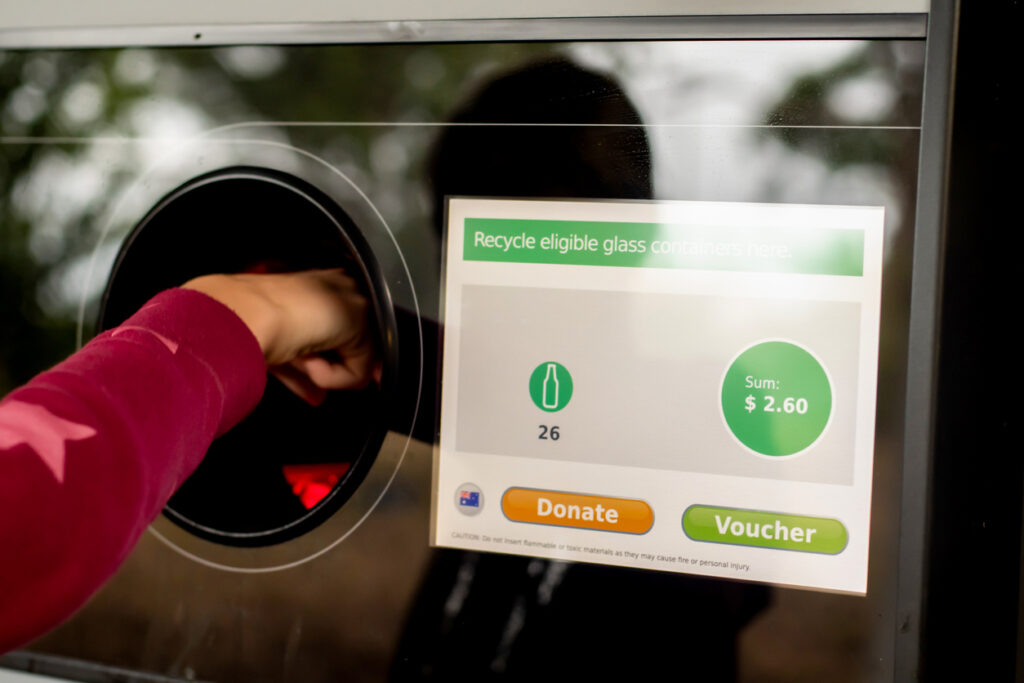Introduction
It was interesting to see the post here pop up in my news aggregator the other week. It appears that deposit return schemes (DRS) will be introduced in the UK in the near future. This brought back a lot of memories from my youth. I remember my parents buying soft drinks in glass bottles from doorstep deliveries (the corona van) and when they came again you could return the empties and get 5p a bottle back!
Other countries have had such schemes for many years. When I was on holiday in Munich a few years back I remember that if I returned the packaging from products I had bought from a nearby supermarket and could get a refund in the form of a voucher that would allow me to claim money for my shopping. This was done by placing the items in a big machine in the foyer of the store. I would scan the products bar code, deposit the item and then receive a voucher. A great idea, why can’t we do that in the UK since Germany has had a scheme operating since the early 2000s.
Deposit return schemes, what are they?
Generally, under DRS a deposit is placed on an item that can be reclaimed when the item is returned to a collection point. There is no limit on who can return such redeemable items, it does not necessarily have to be the person who purchased the product in the first place.
It is a good approach that is more ‘carrot’ than ‘stick’ providing an economic incentive for completing an action that benefits society and the environment. Having more items returned means less litter and more circularity (resources are reused rather than ending up in a landfill site somewhere). According to the latest version of the Reloop Global Deposit Book the return rate (amount of drinks container material collected expressed as a percentage of drinks container materials placed on the market) is much higher in countries that operate a DRS. For example, the top three return rates are Germany (98%), Finland (97%) and Norway (92%).
How will the scheme operate in the UK?
The Deposit Scheme for Drinks Containers (England and Northern Ireland) Regulations 2025 gives us an insight into one of the UK versions of the DRSs. This DRS will only apply to single use drink containers made from PET plastic, steel or aluminium that contain 150ml and 3 litres of liquid. The law states that a scheme will operate from the 1st October 2027. There will also be two separate DRSs operating in Wales and Scotland. I’m thinking that these will be very similar to the one planned for England and Northern Ireland to ensure practicality and fairness.
Interestingly, at this point no mention is made on what level the deposit return will be, although the same deposit level is likely to be set across the UK (using ‘best endeavours’ to achieve this the English and Northern Irish scheme identifies). You will also be able to claim a deposit for relevant empty containers purchased outside of England and Northern Ireland.
The scheme is to be administered by the ‘deposit management organisation’ which will be overseen by the government. ‘Registered scheme producers’ , basically those that supply applicable drinks, must keep records of the drinks they supply and label deposit items. There are also rules in place for return points, for example they are to be ‘Mandatory Return Points’ and ‘voluntary return points’. There will also be some exemptions, such as for small grocery stores in urban areas (I assume due to lack of space to store returned items). The practicality of how the scheme operates has yet to be decided.
Final Note
After my experiences in Germany, I am glad to see that DRSs will be operational in the UK. It is nice to see that things that were popular in the recent past, much like a 90’s pop group, can be successful now. I just wonder why it has taken so long for a DRSs to be introduced in the UK.

John Binns BSc (Hons) MSc MISEP (formerly IEMA) is an experienced environmental tutor and consultant.
